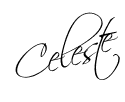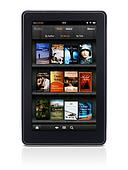The important thing is to make wise purchasing choices. Doing the research before I buy has made for less costly mistakes and better purchases. I only have a budget of about $200 a year to spend on curriculum. Most of that is spent on Aleks math and then classic books throughout the year to build up our home library.
Here are a few tips to save money so that you can better budget for the things you really need:
1. Wet Erase Sheets
I discovered this trick a few years ago. Rather than buy multiple student worksheet books or copy everything, I made these cheap and easy re-useable sheets. (By the way, I own very few worksheets anymore, but we use these sometimes.)
Take a few clear plastic sheets and cut off the side with the 3 holes.
Slide the plastic sheet over the page in the student worksheet.
Using a fine tip wet erase pen, have your child finish the worksheet.
After you check the work, slide the sheet off.
Clean with a damp paper towel or washcloth (or sock, see below).
2. Personal Dry Erase Boards
These have become very popular in public schools, but I think they are a MUST HAVE for homeschooling. Children can go through a LOT of paper. I find these work for math problems, scratch paper, spelling practice, doodling, handwriting, etc.
3. Socks Erasers
We all have divorced and separated socks somewhere in our laundry, right? Why not reuse these poor lost socks as erasers for your Dry Erase Boards and Wet Erase Sheets. (They make good "dusting gloves" for kiddos too).
4. Use the Library
 We use a ton of classics books and my budget does not allow me to own all the books we read each month (much less the space to store them). The library has most of the books we would want. If they don't, the Interlibrary Loan system has allowed us to borrow books from numerous local libraries without paying a cent.
We use a ton of classics books and my budget does not allow me to own all the books we read each month (much less the space to store them). The library has most of the books we would want. If they don't, the Interlibrary Loan system has allowed us to borrow books from numerous local libraries without paying a cent.5. Buy Used
Most families are also on a shoestring budget when it comes to homeschooling. Therefore, they re-sell their homschool curriculum in fairly good condition in most cases. I've bought from used curriculum fairs, eBay, Amazon, Home School Classifieds, Half.com, and Craigslist. For example, the Excellence in Writing Style and Structure program is $169 new. I bought it at a used curriculum fair for $40.
6. Sell Your Gently Used Curriculum
Like the post above, I also sell some of our used curriculum on the above websites. I often buy the items used and re-sell them later for about the same price I bought them for, breaking even!
7. Borrow Curriculum and Books
I was lucky enough to live in an area that had a great homeschool library that allowed members to borrow or check out items for a semester at a time. I also allow people to borrow items I have and have borrowed items from others to look at before purchasing. It helps to cut down on impulse buying and thus save you from spending money needlessly.
8. Use Online Freebies
The Internet is a vast source of free curriculum and teaching aides. There are too many to list here, but here are a few of the top contenders:
- Khan Academy - Math, History, Science, Economics, etc. Video based and easy to use. They have a Knowledge Map where students can master math topics and earn points and badges.
- YouTube - Many educational videos are available like Spalding Phonics, School House Rock, and The Human Calculator.
- Learning Page - Tons of worksheets for the early elementary years for math, handwriting, animals, etc.
9. Read for Free
Not only is the library a great free source for classic books. There are free Apps that can be downloaded for most phones, tablets, and computers to read books for free.
The top eBook Apps are:
- Nook by Barnes and Noble
- Kindle by Amazon
- Google Books
Be careful of searching for "free" books as many undesirable books may also surface. Search for the specific title and author. We've downloaded several free titles, including, "20,000 Leagues Under the Sea", "Sense and Sensibility", "Guliver's Travels", "The Red Fairy Book" and "McGuffey Readers".
10. Focus on the Core Subjects
I've found that there is a lot of "fluff" out there. Focus on a few sound foundational programs and the rest will fall into place with the reading of classics.
- Spalding Phonics - I borrowed the book "The Writing Road to Reading" from the library and only use the notebook pages where the student copies the rules. I bought a laminated set of the phonogram cards for $14. I've used these for all my children and foster children and never needed anything else.
- Math-U-See manipulatives - I've found that the Math-U-See program was good until the upper maths, but we still keep the manipulatives. I don't think the lower grades even need the curriculum. Most parents can teach basic addition, subtraction, multiplication, and division without an official math program, but the blocks are really helpful.
- Winston Grammar - I use this easy program to teach basic grammar and learn about diagramming sentences. We re-visit the topic for a couple weeks each year to make sure that the knowledge is still there. No other grammar program is needed with a classics based education.
- Excellence in Writing - I have the basic Style and Structure videos with the workbook and that's it! You can literally spend hundreds on needless, repetitive drills. The basic teaching is all you need on a writing program to teach what is expected. Free writing takes the place of all the other fluff.
Just know that we are all sucked in by the need to buy cool looking curriculum that fits in with the conveyor-belt way we were educated. I still get excited when I see workbooks. WHY? I guess it just makes me think...
...yet, we all know that isn't true!
Reading and Personal Study = Learning
Good luck out there! I get tempted to spend too much each year myself.








No comments:
Post a Comment